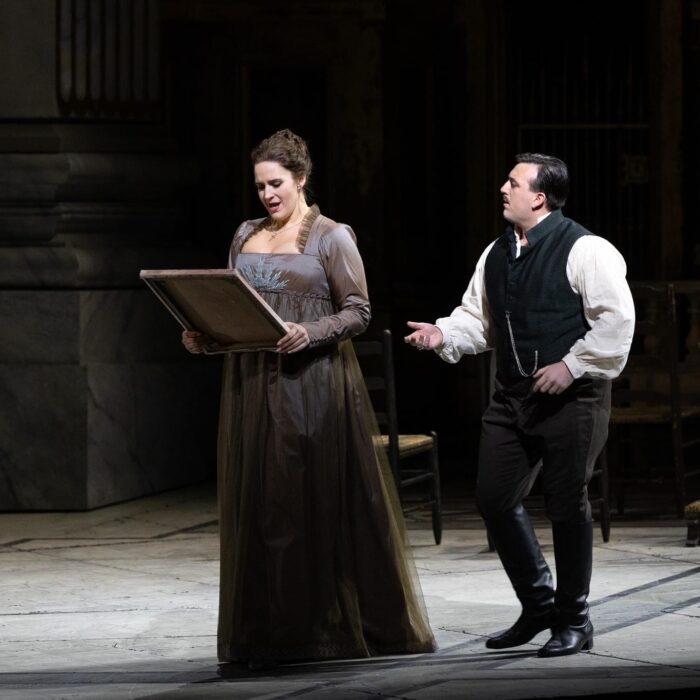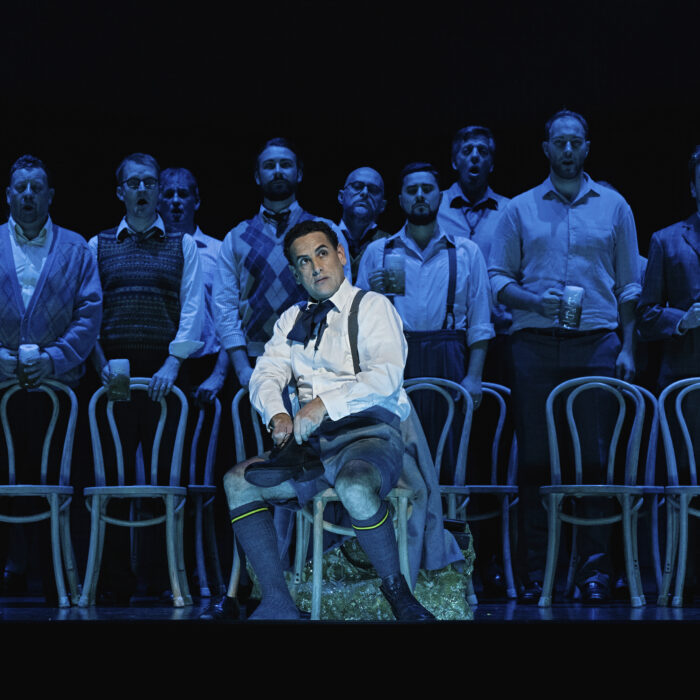
Christopher Summer Festival 2019 Review: Edgaras Montvidas in Concert
A Young Tenor Brings A Young, Millenial Audience To Its Feet
By Polina Lyapustina(Credits: Modestas Endriuška)
What do you think about “your Lithuanian” tenor Edgaras Montvidas? I think he’s a good singer, but actually, I don’t think much. I’ve seen him live only once in Faust. He was okay. But from a distance, he seems something more, or at least more interesting than just okay.
Don Ottavio, Lensky, Werther, Edgardo, Anatol, Faust, Conrad, Alfredo, Pinkerton, Boris Grigorjewitsch, Hoffmann. It seems like Edgaras Montvidas can sing everything. You can meet him in London, Vienna, Paris, Berlin, Glyndebourne, Zurich, Milan, Munich, and of course, in his native Vilnius.
This summer he was back to Lithuania with a concert tour alongside pianist Simor Lepper.
Concert in Vilnius took place in a big beautiful St. Katherine Church, renovated and reopened as a concert venue. I entered the venue and saw a lot of young people. People have a perception that that opera is getting out of date as its audience is getting old; by extension the art form is also aging, but I guess this is not quite correct.
Bright young artists always attract young people. And here’s the question that’s more prevalent: How to keep them?
Managing A Crowd
Edgaras Montvidas always looks smart and intelligent but not boring. He’s here to represent himself, but also to educate. The program on display was diverse and not obvious for the local audience. Good for me — easy to make up my mind on tenor, but extremely challenging for him to do what he set out to do.
It started with five romantic lieder by Richard Strauss and the tenor immediately showed that he takes German songs like a duck to water. The intimate nature of this repertoire suits him. The romantic atmosphere of the church also helped. From the very beginning, Edgaras Montvidas offered clean high notes and gentle pianissimos to his audience. It seemed even more lively than I was used to hearing in other concerts. Montvidas marvelously held onto pauses, and the audience was held breathless so as not to break the silence.
Then came time for some French music by Hahn and Debussy. It was an intriguing turn and rare chance to hear these pieces in Vilnius.
That said, this part of the program was not that successful. Montvidas seemed a bit uncomfortable with the style and it seemed that French makes him overplay. Moreover, the lightness and natural qualities that illuminated the Strauss disappeared.
Moving Into Spanish
“Siete canciones populares españolas” (“Seven Spanish Folksongs”) — a 1914 set of traditional Spanish songs arranged originally for soprano and piano by Manuel de Falla – came next. The audience was given leaflets with the texts.
There were fewer high notes in this set, but since the songs were written for soprano voice, getting down to the very bottom seemed very easy for the tenor. I feel like his singing lacked some dramatic flair that the pieces ask for, but it seemed unfair to demand Spanish flavor from a Lithuanian tenor.
The second part brings us back to the familiar land.
“Tre sonetti di Petrarca” by Franz Liszt as well as the Barcarolle from the Lithuanian opera “Jurate ir Kastytis.” Finally, Lensky’s aria from “Eugene Onegin” was so good that it brought me to tears. This was where the tenor was at his very best overall.
As for the last aria, “Recondita armonia,” Montvidas joked that the church was the perfect place for the piece. As a result, he played an artist in a church, inspired by all the beauty around and inspiring by the beauty of his own art. While he’s not yet a true Cavaradossi voice, the tenor definitely can sing this piece with the highest quality.
Montvidas still has some ways to go and improve on his way to being a top tenor in the opera world. But now, it seems like he already has a lot to share and that is what he is doing in different countries, on different stages, and in a wide range of languages including English, Russian, French, Italian, Spanish. He has found beauty and, being young himself, he knows how to reveal it to his — younger — audience.
In the context of this concert, that strategy seems to be about moving audiences step by step with lighter and shorter versions. Play with Puccini. Use Russian dramatic effect. Treat them to something close to home with the native language. Perform alongside friends. Feel casual. Stay classy.
Will Millennials kill opera? I’ve recently read an article with this title. We want them to come, but we are afraid of them in “our” opera houses. How not to downshift opera? How to keep the quality high?
“Let’s bring them to the church,” Lithuanian tenor responded with his latest concert. “Let’s treat them with the best we have and let’s see how they respond.”
On this night, the audience members showered the tenor with a standing ovation.



